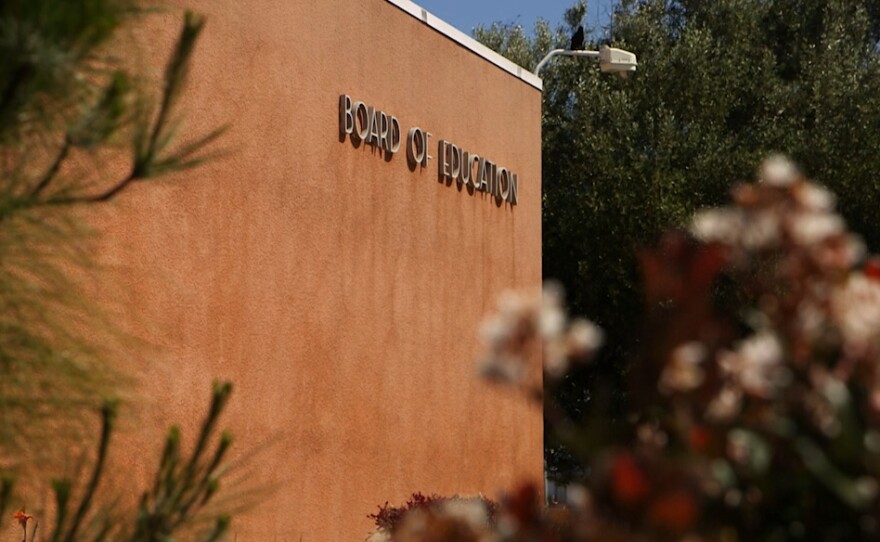The San Diego Unified School District's Board of Education will vote Tuesday on a conflict resolution policy that emphasizes mediation over punishment.
The School Climate Bill of Rights, proposed by the City Heights-based nonprofit Mid-City Community Advocacy Network, would entitle students to restorative practices. The process encourages educators and students to address disputes through communication and counseling instead of expulsion or suspension, which local, state and national data have shown disproportionately affect students of color.
A draft version of the document from City Heights community members and students calls on the district to establish a Restorative Practices Advisory Committee and draw up an implementation plan. It also recommends annual training for district employees and identifies program goals.
San Diego County Office of Education Senior Manager Anthony Ceja, who trains school officials in the process, said restorative practices can make students feel more connected to their school and can curb punitive measures that may inadvertently push students out of class and into the criminal justice system.
"Kids when they don't feel connected in the school — when they begin to feel completely disconnected — they go out and find somewhere where they will connect, and a lot of times that's in the streets," he said.
Ceja noted implementing the practice requires a philosophical shift that can take years.
That job would fall on Program Manager Felicia Singleton. She leads San Diego Unified's newly created Department of Restorative Practices, which she said was established on July 1. Singleton said her goal is to train all employees in restorative practices from administrators and instructors to bus drivers and cafeteria workers.
"We don't want this to be something that's just happening in classrooms, we want everyone to live and work in a restorative place," said Singleton, who has helped some schools independently implement the practice, including Hoover and Crawford high schools serving City Heights students.
Singleton said officials could also use the conflict resolution procedures to address not just disputes with students, but among colleagues.
State law lists school climate among eight priorities districts must address in their accountability plans. Other California school districts, including San Francisco and Anaheim, have adopted policies on restorative practices.
However, a recently published paper argues whether there is enough research on the effectiveness of the process.






